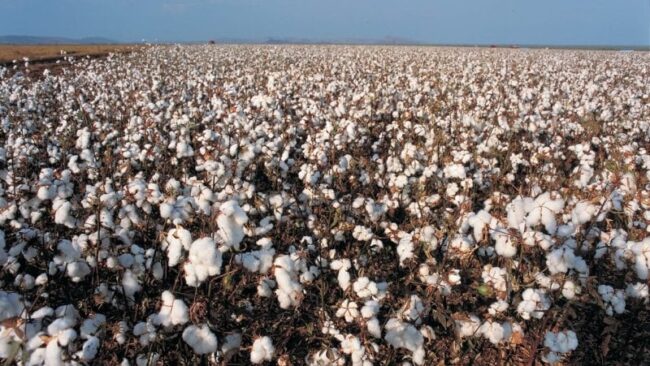Cotton farmers have assured that the journey to revive the moribund Nigerian textile industry has been shortened with the introduction of two genetically modified cotton seed varieties, also known as BT cotton, in 2018.
The two cotton varieties identified as MRC 7377 BG 11 and MRC 7361 BG 11 were developed by Mahyco Nigerian Private Ltd. in collaboration with the Institute for Agricultural Research (IAR).
Since the collapse of the Nigerian textile industry, millions of jobs have been lost due to the non-supply of cotton to the textile industries. The country’s importation bill on textiles grew to about $319 million in 2019.
However, hope for the textile industry came alive when the Nigerian government approved the commercialisation of these two cotton varieties, which have the capacity to resist ball worm and increase their yield compared to the conventional varieties.
Alhaji Buhari Musawa, a cotton farmer based in Katsina, said that BT cotton, which they call Mahyco cotton, has increased the yield of the farmers in the state, especially his own farm.
He noted that the conventional variety, which they call Hausa cotton, is underperforming when placed side by side with the transgenic variety.
Mahyo cotton gives me 40 bags of cotton per hectare, while Hausa cotton gives me less than 20 bags per hectare,” Alhaji Musawa said.
With this marginal increase in the yield, the farmers have been able to make more money and increase their contribution to the raw materials for the textile industry.
Abubakar Hamidu, a cotton farmer in Adamawa State, said with good agronomic practice, the Mahyco cotton can give up to two tons per hectare, while the conventional variety gives at most one tonne per hectare.
In terms of the physical appearance of the cotton on the field, Hamidu said the transgenic variety outgrows the conventional variety.
One of the major causes of the collapse of the textile industry was the shortfall in the supply of cotton, which can be attributed to a lack of technology to boost yield.
With the use of biotechnology to develop these high-yielding cotton varieties, the textile industry may be on its way to revival.
The market development officer of Mahyco, Yusuf Hamza, said the feedback from cotton farmers has been very satisfactory following the successes they have recorded.
“So far, the feedback from farmers is good because they have appreciated the seed. The seed has so many features when you compare it with the conventional variety. It has a high yield, there is immunity in it, and it has tolerance to certain pests, especially the ball worm,” he said.
Hamza said farmers have been appreciating the transgenic cotton variety because it reduces the cost of applying pesticides and the output is doubled.
ALSO READ THESE TOP STORIES FROM NIGERIAN TRIBUNE
